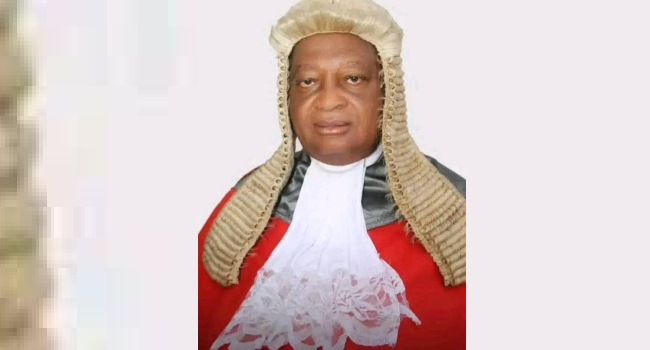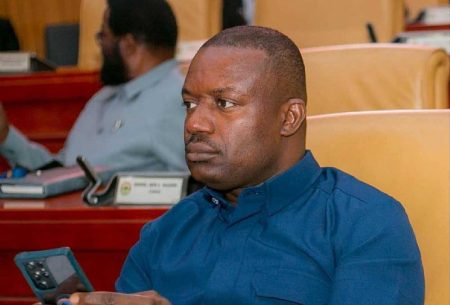Paragraph 1: The National Judicial Council’s Assertion of Authority
The National Judicial Council (NJC) has firmly asserted its constitutional authority over the appointment and discipline of judicial officers in Nigeria, emphasizing the established legal procedures that must be followed. The NJC’s statement came in response to the Benue State House of Assembly’s purported removal of Chief Judge Maurice Ikpambese. The council unequivocally stated that Justice Ikpambese remains the Chief Judge of Benue State and that the Assembly’s action holds no legal weight. The NJC’s spokesperson, Kemi Ogedengbe, clarified that any complaints against a judicial officer must be thoroughly investigated by the council, adhering to the principles of due process and fair hearing, before any disciplinary measures can be considered.
Paragraph 2: The Benue State House of Assembly’s Action and the Constitutional Conflict
The Benue State House of Assembly’s move to remove Justice Ikpambese sparked a constitutional conflict, highlighting the tension between the legislative and judicial branches of government. The Assembly’s recommendation for the Chief Judge’s removal, allegedly based on unspecified complaints, was swiftly condemned by the NJC as unconstitutional and a disregard for established legal procedures. The Assembly’s action bypassed the NJC’s exclusive authority over judicial discipline, raising concerns about the separation of powers and the rule of law. This incident underscores the importance of respecting constitutional boundaries and the proper channels for addressing grievances against judicial officers.
Paragraph 3: The National Assembly Caucus’s Condemnation and Warning
The Benue State Caucus in the National Assembly joined the NJC in condemning the House of Assembly’s action, describing it as illegal, null, and void. The caucus, comprised of federal lawmakers from Benue State, expressed deep concern over the potential constitutional crisis triggered by the Assembly’s disregard for due process. They called upon the NJC to intervene swiftly and restore order, emphasizing the importance of upholding the independence of the judiciary. The caucus further warned that if the situation remained unresolved, the National Assembly might be compelled to exercise its constitutional power to take over the affairs of the Benue State House of Assembly.
Paragraph 4: The NJC’s Commitment to Due Process and Fair Hearing
The NJC emphasized its commitment to following due process in the handling of the petition against Justice Ikpambese. While acknowledging the receipt of the petition, the council stressed that a thorough investigation must be conducted, affording Justice Ikpambese the opportunity to respond to the allegations against him. This commitment to fair hearing reinforces the NJC’s role as a guardian of judicial integrity and ensures that any disciplinary action is based on evidence and not arbitrary decisions. The NJC’s adherence to due process is crucial for maintaining public confidence in the judiciary and ensuring accountability within the judicial system.
Paragraph 5: The Importance of Upholding Constitutional Provisions
The clash between the Benue State House of Assembly and the NJC highlights the critical importance of upholding constitutional provisions regarding the appointment and discipline of judicial officers. The NJC’s assertion of its constitutional authority serves as a reminder that due process must be followed and that the independence of the judiciary must be protected. Disregarding established procedures creates a dangerous precedent and undermines the rule of law. Adherence to constitutional provisions is essential for a stable and functioning democracy.
Paragraph 6: Implications for the Rule of Law and Judicial Independence
The events in Benue State have broader implications for the rule of law and judicial independence in Nigeria. The attempt to remove a Chief Judge without following due process raises concerns about potential political interference in the judiciary. A strong and independent judiciary is essential for upholding the rule of law and protecting the rights of citizens. This incident underscores the need for continued vigilance in defending the judiciary from undue influence and ensuring that all branches of government operate within their constitutional boundaries. The NJC’s firm stance serves as a crucial safeguard for judicial independence in the face of potential political pressure.














